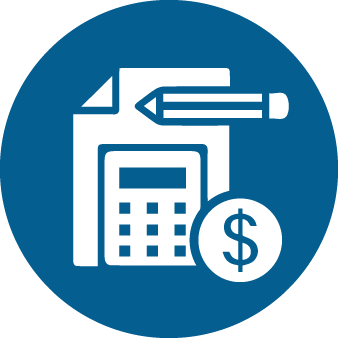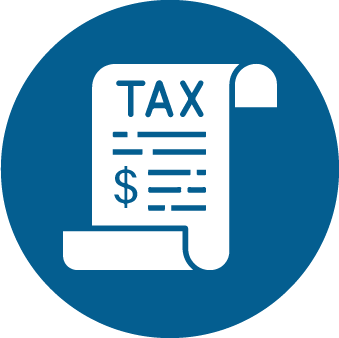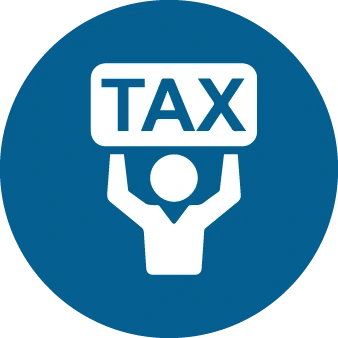Figuring out how much you take home after taxes in New Jersey is key to good financial planning. If you earn $250,000, you'll face the state's progressive tax system. This article will help you understand what you'll keep after taxes.
We'll look at the tax rates and any deductions you might get. This way, you'll know what to expect from your paycheck. It's all about making sense of your financial situation.
Key Takeaways
- New Jersey's tax system significantly affects high earners.
- Understanding effective tax rates can help with financial planning.
- Deductions play a vital role in determining take-home pay.
- Accessing a tax calculator can simplify tax estimations.
- Knowledge of tax brackets is essential for understanding your tax burden.
Understanding the New Jersey Tax System
The New Jersey tax system is based on a progressive income tax model. This means the NJ state tax rate changes with your income level. Those who earn more pay a higher percentage of their income in taxes.
Along with income tax, the system also includes sales tax and property tax. These taxes help fund the state's revenue.
Income tax brackets in New Jersey range from 1.4% to 10.75% for the highest earners. For someone earning $250,000, the marginal state income tax rate is 6.37%. Knowing these brackets helps residents plan their taxes better.
With different tax rates, people can make smarter choices about their money. This is key to managing their finances well.
In short, understanding the New Jersey tax system is essential. It affects how people budget, plan their finances, and contributes to the state's economy.
Certain seniors and veterans may be able to stop paying property tax in NJ—see if you qualify.
Key Components of NJ State Taxes
Understanding NJ state taxes means knowing the different parts that make up the tax system. The state uses various taxes to generate revenue, which helps pay for public services and infrastructure.
One major part is individual income tax. New Jersey taxes people based on how much they earn. The more you make, the higher your tax rate.
Corporate taxes are also key. Businesses in New Jersey must follow tax rules based on their net income. These can affect profitability.
For growing businesses, part-time CFO services offer strategic financial planning without the full-time cost.
Estate taxes were repealed as of January 1, 2018. However, the state does levy an inheritance tax.
Sales taxes add to the mix. New Jersey has a 6.625% state sales tax, with certain items taxed differently or exempt.
In short, these main parts of NJ state taxes show how complex the system is. They show how both people and businesses shape New Jersey's economy.
For more detailed support, precision tax relief may be necessary when managing audits or back taxes.
How Much Is $250,000 After Tax in NJ?
Figuring out how much $250,000 is after taxes in NJ requires understanding the tax rules. New Jersey’s tax system increases taxes as income increases. State and local taxes can reduce your take-home pay from $250,000. Knowing these taxes is key to good financial planning.
For a local breakdown, read about the taxes in Clifton, NJ, including property and municipal levies.
Overview of Tax Implications
People making $250,000 in New Jersey face different taxes that lower their earnings. These include:
- State Income Tax: New Jersey's marginal tax rate for this income level is 6.37%.
- Local Taxes: Additional taxes may apply depending on your municipality.
- Federal Taxes: Federal income tax significantly impacts overall take-home pay.
Consider tax settlement services in New Jersey if you need professional support for negotiating your tax debt.
Staying compliant means knowing key deadlines—refer to our guide on the due date for payment of tax to avoid penalties or interest.
Calculating Effective Tax Rate
The effective tax rate changes with deductions and credits. To determine it for $250,000:
- Refer to current tax brackets to find the applicable rates.
- Apply standard or itemized deductions to reduce taxable income.
- Subtract any credits that reduce the tax owed.
For a $250,000 after-tax calculation, online tax calculators provide accurate estimates based on inputs like filing status and deductions.
Understanding NJ Income Tax Brackets
New Jersey’s income tax system uses a progressive rate structure. The brackets ensure taxpayers contribute proportionally to their earnings.
Current NJ Tax Bracket Structure (2024)
Income Range | Tax Rate |
| Up to $20,000 | 1.4% |
| $20,001 - $35,000 | 1.75% |
| $35,001 - $40,000 | 3.5% |
| $40,001 - $75,000 | 5.525% |
| $75,001 - $500,000 | 6.37% |
| $500,001 - $5 million | 8.97% |
| Over $5 million | 10.75% |
For a side-by-side comparison of federal brackets, visit our IRS tax rates table to better understand your total tax burden.
Impact of Bracket on High Earners
For someone making $250,000, the applicable marginal tax rate is 6.37%. Since New Jersey uses a progressive tax system, only the portion of income within each bracket is taxed at that rate.
High earners need to consider the impact of these brackets on their financial decisions.
Utilizing a New Jersey Tax Calculator
Using a New Jersey tax calculator simplifies estimating taxes owed. These tools are tailored to the state’s tax structure.
You can find reliable calculators on financial and government websites. Most require basic information such as income, filing status, and deductions.
To ensure accurate results, enter data carefully. Having documents like W-2s and previous tax returns on hand helps avoid errors.
Before estimating, gather necessary documentation like W-2s or refer to IRS tax forms and publications to ensure accuracy.
Estimating Earnings with NJ Income Tax Estimator
The NJ income tax estimator is helpful for residents to forecast their take-home pay. It provides tailored results based on personal inputs.
Step-by-Step Guide
- Gather Financial Information: Total annual income, filing status, and potential deductions.
- Access the Estimator: Use a reputable online NJ tax estimator.
- Enter Income Details: Input your earnings and any deductions.
- Review Output: Check estimated tax liability and net income.
- Adjust Scenarios: Experiment with different values to explore how your taxes change.
Benefits of Using an Estimator
- Accuracy: Offers realistic estimates to aid financial planning.
- Scenario Testing: Helps visualize the impact of deductions or income changes.
- Time Efficiency: Faster than manual calculations.
Exploring NJ Tax Deductions
New Jersey residents may benefit from certain deductions to reduce taxable income. These include:
- Mortgage Interest: Deduct interest paid on home loans.
- Property Taxes: Deduct up to $15,000 of property taxes paid on a primary residence.
- Charitable Contributions: Deduct eligible donations to qualified organizations.
These deductions can offer meaningful tax savings. Understanding their qualifications and limits is important. Taxpayers should retain all supporting documentation.
Make sure you know how long to keep your tax documents—review our record retention guidelines to stay compliant.
Working with a skilled tax accountant in New Jersey ensures accurate filing and compliance with state laws.
Learn more about who qualifies for the NJ property tax relief credit to see if you’re eligible for added savings.
Calculating Take-Home Pay
Knowing your take-home pay for a $250,000 salary in New Jersey involves several components, including retirement savings, healthcare, and local tax contributions.
Contributions to retirement accounts like 401(k)s not only reduce taxable income but also support long-term goals—especially with help from retirement planning NJ experts.
If you're owed a refund, find out when you can expect your NJ rebate check.
Struggling with debt? Here's how to pay off a tax lien in NJ the right way.
Factors Affecting Take-Home Pay
- Retirement Contributions: Contributions to 401(k) or IRA accounts reduce taxable income.
- Healthcare Deductions: Premiums for employer-sponsored plans can lower net pay.
Business owners also face payroll compliance costs—consider payroll services near you to ensure accurate deductions and filings.
- Local Taxes: Municipal levies may further affect earnings depending on your location.
For better control of income and expenses, many professionals rely on bookkeeping services near you to track finances and optimize deductions.
Example Calculation for $250,000 Salary
Income Component | Amount ($) |
| Gross Salary | 250,000 |
| Federal Income Tax (estimated) | 45,000 |
| State Income Tax (estimated) | 14,045 |
| Social Security Tax (6.2% to cap) | 9,932 |
| Medicare Tax (1.45% + 0.9% over $200K) | 4,125 |
| Retirement Contributions (401k) | 15,000 |
| Healthcare Deductions | 5,000 |
| Total Deductions | 93,102 |
| Net Take-Home Pay | 156,898 |
Note: Actual values vary based on individual circumstances such as filing status, other income sources, and deduction eligibility.
Property Taxes: Deduct up to $15,000 of property taxes paid on a primary residence. See how NJ handles property tax deductions.
Conclusion
Understanding how much of your $250,000 salary you keep after taxes in NJ is vital. This article reviewed the structure of NJ’s tax system and its implications.
New Jersey’s progressive tax brackets and federal taxes significantly impact net income. Using estimators and understanding deductions ensures better financial planning.
Staying informed about your tax obligations allows for smarter budgeting and long-term planning.
Partnering with top accounting firms in NJ like ours ensures accurate tax estimates, strategic advice, and compliance every step of the way.
FAQ
How much is $250,000 after tax in NJ?
After taxes, a $250,000 salary in New Jersey may result in a take-home pay of approximately $156,898 depending on deductions and filing status.
What is the current NJ state tax rate?
New Jersey’s marginal tax rate for $250,000 income is 6.37% in 2024.
How can I calculate my NJ income tax?
Use a New Jersey income tax calculator by entering your income, filing status, and applicable deductions.
What are the NJ tax brackets for 2024?
The rates start at 1.4% for income up to $20,000 and rise to 10.75% for income over $5 million.
What deductions are available to New Jersey residents?
Residents may deduct mortgage interest, property taxes (up to $15,000), and certain charitable contributions.
How do local taxes affect my take-home pay in NJ?
Local taxes vary by municipality and may affect net income through additional property or school levies.
What are some common factors affecting take-home pay from a $250,000 salary?
Take-home pay is influenced by federal and state taxes, Social Security, Medicare, retirement contributions, and healthcare deductions.
How can an NJ income tax estimator help me?
It provides a personalized tax estimate and helps plan for different income and deduction scenarios.
Are there any common mistakes to avoid when calculating taxes in NJ?
Avoid overlooking deductions, ignoring local taxes, and failing to update your information when income changes. These mistakes can result in incorrect estimates.
Do I get the NJ Exit Tax back?
Many sellers qualify for refunds—here’s what you need to know.
Wondering about past liabilities? Here’s how long New Jersey can collect back taxes.
Related Articles
Services provided for you
Bookkeeping Services in Clifton, NJ
We serve a range of industries and customers, in an organized, friendly, and reliable way.
Business Tax Services
We are in a position to identify tax planning shots that reduce both your current and future tax liabilities.
Individual Tax Services
We gauge our worth by the personal and business successes of our clients and industries.
Payroll Services
For small and large corporations, payroll systems, highly qualified payroll experts support our services. Our primary objective is to provide customized services and highly favorable pricing for you.
Non-Profit Organization Services
Precision Accounting Intl can assist you set up and maintain your non-profit organizations nontaxable standing by handling all the authority reportage for you.
Part-Time CFO Services
If you"re ready enough to be in this role. Our Part-Time CFO Service Package provides you with a knowledgeable financial manager who will work with you to help guide the progress of your business.


.webp)








